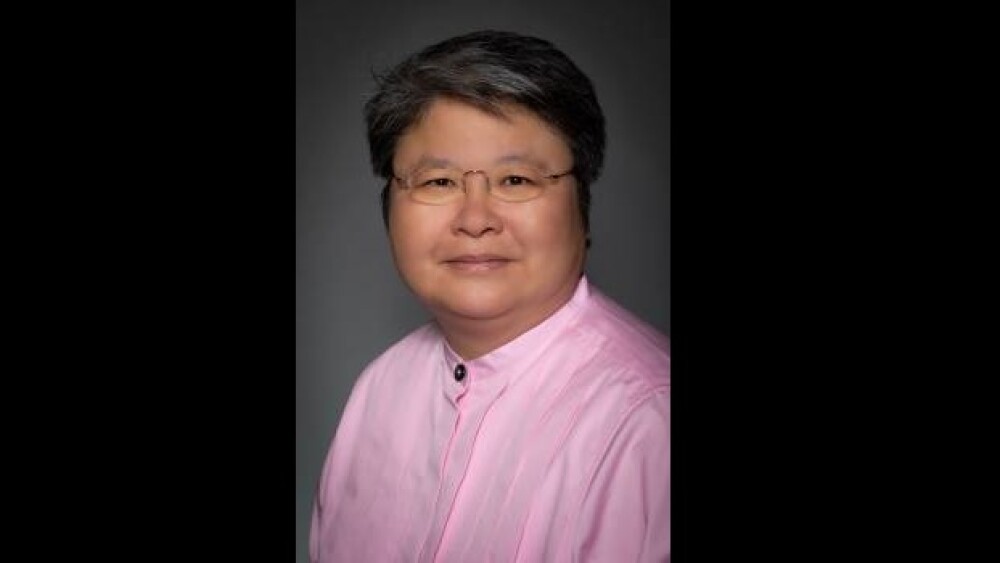Los Angeles-based ACELYRIN, Inc. announced a quarter-million dollars in Series B financing Tuesday morning, along with a splashy licensing deal.
ACELYRIN Co-founder and CEO Dr. Shao-Lee Lin, M.D., Ph.D./ACELYRIN, Inc.
Not a year after emerging from stealth, Los Angeles-based ACELYRIN, Inc. announced a quarter-million dollars in Series B financing Tuesday morning, along with a splashy licensing deal.
Founded in December 2020 by Dr. Shao-Lee Lin and Robert F. Carey, ACELYRIN initially focused on immunology. The company set off on a quest to acquire promising drug candidates, one that led to Swedish biotechnology company Affibody AB and an antibody mimetic, interleukin-17A (IL-17A) inhibitor called izokibep.
In its inaugural licensing deal, ACELYRIN has obtained worldwide rights to izokibep, except developing and commercializing in selected Asian countries, including China, Hong Kong, South Korea and Taiwan, and commercializing in Nordic countries.
AyurMaya, an affiliated fund of Matrix Capital Management, Surveyor Capital, a Citadel company, and Westlake Village BioPartners, who provided the initial Series A funds, led the Series B financing. The two are joined in this round by Cowen Healthcare Investments, Decheng Capital and OrbiMed, among several other blue-chip investors.
Izokibep will be a busy little molecule in the coming months. ACELYRIN is currently enrolling the asset in a pivotal trial to treat uveitis, a vision-threatening form of inflammation inside the eye. It is also enrolling a Phase IIb study, investigating izokibep’s potential in treating a chronic form of arthritis called axial spondylarthritis (AS), which primarily affects the spine and enthesites
—a specialized tissue that connects ligaments and tendons to the bone. Also on the horizon is a Phase IIb trial for a chronic inflammatory disease of the exocrine sweat glands called hidradenitis suppurativa (HS). Patients suffer from painful nodules and abscesses in the axilla, groin, and gluteal areas.
Izokibep “is designed to overcome the limitations of monoclonal antibodies,” Dr. Shao-Lee Lin, M.D., Ph.D., co-founder and chief executive officer of ACELYRIN told BioSpace.
A primary limitation is that only so much of a monoclonal antibody will fit into a single volume, necessitating multiple injections or even wearable infusion devices for IV administration, she explained. “Izokibep as a molecule was designed with extraordinarily high potency. It’s a very small molecular size, about a tenth of the size of an antibody, and together, these things enable high exposures, and the potential for enhanced tissue penetration all within a single subcutaneous injection.”
Another benefit of izokibep is its strong safety record, as more than 300 patients have already been exposed to the drug through earlier trials.
“That really confirmed the safety profile of this mechanism and this molecule in particular and supported the strategy of pursuing transformative efficacy by providing additional exposure,” Lin said. She noted that the mechanism of action had been traditionally safe with no dose-limiting toxicities identified thus far.
Izokibep will set the tone for ACELYRIN’s overall pipeline while allowing the company to expand its licensing parameters to consider earlier-stage assets.
“We will be in ophthalmology, rheumatology and dermatology as a result, and we will pursue a strategy moving forward that includes building as many synergies as we can with downstream in mind, ensuring that we’re synergizing the potential physician call points,” Lin shared. She added that because izokibep is providing the company with plenty of late-stage clinical activity, it “gives us the freedom to potentially go a little bit earlier in the pipeline.”
Affibody CEO David Bejker expressed his excitement about the partnership’s potential.
“As the innovators of izokibep, we’re honored to work with ACELYRIN to unlock this molecule’s potential and address promising new indications and solve unmet needs. In addition, we look forward to working with the ACELYRIN team to select additional targets and build new programs, in parallel with the development of izokibep,” he said.
While ACELYRIN has deep experience in immunology, Lin said, “You can anticipate that we would be interested in things that were in the clinical stage that we felt had some special opportunity to be transformative for those patient populations.”






